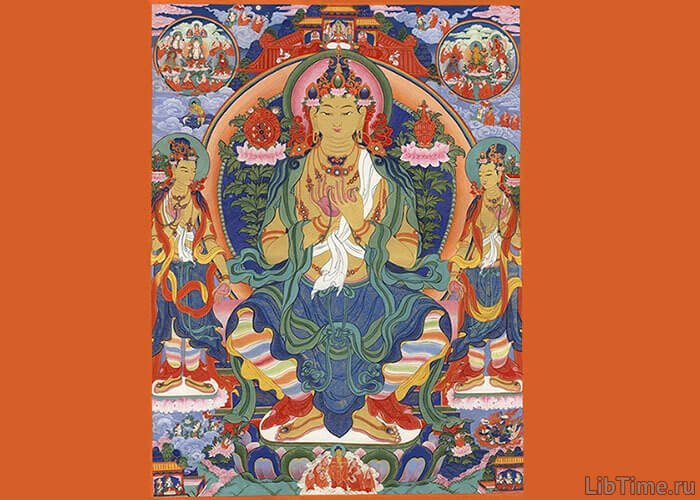Schools of Chinese medicine
By the Song Dynasty (960-1279), (read more: China in the 12th century), much medical knowledge had already been accumulated. The medics, according to their views on the basic issues of the origin, prevention and treatment of diseases, were divided into different schools of Chinese medicine.
4 main schools of Chinese medicine
Based on the different views on the methods of treatment of diseases, the medics of China created 4 main schools of Chinese medicine:
- Cooling School.
- School of excretion of excesses.
- The school of strengthening the digestive organs.
- The school of "ying support".
Cooling School
The former called itself the cooling school. It was headed by Liu Wan-su, a major scientist, physician and philosopher (born in Heichang County, Hebei Province in 1120, died in 1200). He is best known as the creator of a number of theories of diseases of the human body.
In particular, his theory of "fire and water" is famous, according to which these two causes determine the acuteness of the course of the pathological process. It is about high temperature and dehydration of the organism.
According to Liu's theory, to be successful in treating a disease with a high fever, it is necessary to lower that temperature or, as Liu defined it, -
reduce the fire of the heart and increase the water of the kidneys,
- for which one must drink as much as possible. To this end, he created a whole series of antipyretics and diuretics. In the works of Liu, which have been preserved in the libraries of ancient medical literature up to the present time, the negative influence of a number of external adverse factors of nature on the body is constantly emphasized.
They are mostly considered to be the main cause of disease, and this is the rational element of Liu's teachings. In his medical practice, Liu Wan-su consistently and very successfully applied the theory he created. He was especially willing to treat the poorest part of the population. Liu's wide popularity in the country attracted the attention of the imperial family.
The emperor repeatedly summoned Liu to himself and offered him to take the place of the court physician, but Liu each time refused this high honor, motivating his refusal to give himself entirely to the development of his theories. But at the same time, he continued to be the people's physician, "the doctor of the poor". To this day among the population, the name of Liu is sung in songs, he erected monuments.
School of excretion of surplus
The second school - excretion of surplus. Its representatives were followers of the famous pharmacologist of the 11th century Zhai Zhong-zhen, who attached great importance to laxative and vomiting means. Mainly from them and consisted of the arsenal of drugs of this school. It was headed by Zhang Tzu-he (born in 1156, died in 1228).
School Zhang Tzu-he created the so-called doctrine of "the expulsion of evil" ("removal of excesses"), that is, the removal of harmful acting on the body began to maintain the strength of the body itself.
Based on the provisions of this doctrine, Zhang Tzu-he in his practice widely used laxatives, believing that the pathogens acting harmful to the body and causing its diseases are concentrated in the intestines and that the systematic cleaning of the latter, creating conditions in which food will not be delayed long in the digestive tract, create favorable conditions for the preservation of health.
As one of Liu Wan-su's students, he agreed with his teacher on the classification of diseases, but was not a supporter of his "fire and water" theory. In the treatment of any disease, he considered sweating, cleansing the intestinal tract and vomiting necessary. Often he used these three methods simultaneously. Especially often he resorted to purification of the intestines.
Paying extremely much attention both in practice and in his scientific work on the issues of rational nutrition, Zhang was an opponent of another school of the time, the main therapeutic principle of which was to ensure the strengthening of nutrition. Among his writings are special works on the dangers of irrational nutrition.
With all the force of his authority he attacked doctors who always and indiscriminately prescribed nutritional intensification, considering it an important therapeutic factor.
The 200 case histories he wrote, which included a detailed analysis of the disease, identification of causes, descriptions of the course of the disease and the treatment given, have been reprinted many times and have long served as a manual in the training of physicians. In these case histories, the main idea was the harm of irrational nutrition. Zhang's successes in treatment and wide medical practice brought him great fame, and his memory has been preserved to the present day.
School of strengthening the digestive organs
The followers of the third leading theory of medicine of the Song period belonged to the school of strengthening the digestive organs. The physician Li Dong-yuan (1180-1251), a representative of this school of Chinese medicine, was a longtime student of the then famous physician Zhang Yuan-su, a proponent of the use of small doses of drugs.
Li Dong-yuan, having well studied and mastered the vast medical heritage and not having the need to earn a living by medical practice (he came from a rich feudal family), paid much attention to the issues of theory. Li flatly refused to use the prescriptions of ancient recipes created before him, believing them to be extremely complicated and therefore irrational, and created a number of his own combinations of medicines.
He also objected to the overuse of antipyretics and laxatives, as recommended first by Liu Wan-su and later by Zhang Ji-he. He believed that the most important cause of disease, in addition to the climatic factor, is fatigue.
Being a follower of the doctrine of "chi" (external and internal agents), he considered these agents as a big philosophical category, believing that "chi" should be understood as a whole sum of factors affecting the body, and that different organs are affected by different agents, although they often cause the same diseases. In 1249 Li Dong-yuan wrote a book on the gastrointestinal tract, which he divided into five departments.
He gave a very perfect for his time description of the stomach and its functions, as well as the large and small intestines. The book on the gastrointestinal tract, written by Li Dong-yuan in 1249.
The book on the gastrointestinal tract, written by Li Dong-yuan in 1249.
The author believed that the stomach played a major role in digestion. He wrote the following:
On the basis of weak stomach function, all diseases arise. When the stomach is weak, then the viscera, vessels and various other organs cannot receive the corresponding healthy "chi" of the stomach, as a result of which diseases arise.
Lee did not object to the use of laxatives and vomiting. However, he believed that if the stomach was sick, none of these remedies should be used. In this sense, Lee was opposed to the teachings of the Zhang Tzu-he school of Chinese medicine. Li attached very great importance to an intensified and rational diet, emphasizing that it was the most powerful means in the fight against disease.
Rational nutrition he considered a factor favorable to the normal function of the stomach and the production of healthy gastric "chi", conditioning the normal functioning of the other four parts of the gastrointestinal tract. In proper nutrition, as Lee believed, extremely important are the taste sensations, as well as the temperature of food.
In many diseases, he wrote, sweet dishes are the only curative means of increasing the production of gastric "chi". The school he headed was called the school of "strengthening the functions of digestion and combating its disorders". The methods of his therapy were widely recognized by folk physicians, they were used for many generations.
Li's theory and philosophical teachings were a great contribution to Chinese medicine.
Ying Support School
Scholars who belonged to the fourth school proclaimed themselves to be proponents of the "yin support" school, meaning mainly blood. Various disturbances in the blood can cause disease, while tranquility helps to maintain the normal state of the blood. Hence the conclusion - the patient needs maximum rest.
The ideologist of this school was Zhu Dan-si (1281-1358), who as a practicing physician is better known as Zhen Heng. Biographers report that Zhu Dan-hsi studied under the major philosophers of the time until he was thirty years old. But due to his mother's illness, his attention was drawn to medicine, and as a mature, educated man, he devoted himself entirely to its study.
Zhu Dan-si held the view that the main causes of disease are excesses not only in food, but literally everything else. This is explained, apparently, by the fact that even before his introduction to medicine, he well assimilated the philosophical system known in China scholar-philosopher Zhu Xi, who preached temperance, calling for everything to observe a sense of proportion.
This teaching also influenced Zhu Dan-si's theory of medicine. His motto was
to live without excess.
Creating theories of disease, Zhu Dan-si attached great importance to the role of blood, its quantitative and qualitative composition.
If a person satisfies all his desires - he allows excesses, and these excesses spoil the blood ...
- wrote Zhu Dan-hsi. The second position of Zhu's teachings was:
If a person does not allow excesses, the blood in the body acquires better qualities and is in the right quantity.
In his medical practice, unlike most physicians of his time, he tried to use as few drugs as possible, especially with complex prescriptions, and opposed the excessive use of the then widely known drugs of silver, mercury, sulfur and gold.
In the treatment of nervous and mental diseases he resorted to irritant remedies. But with regard to the use of these means he had no supporters even among the representatives of the school to which he belonged. The doctrine he created and his main works -
- "Bian que yan and bui." ("Addition to the most necessary in "Bian Que"),
- "Ge zhi yu lun" ("Discourse on Difficult Medical Subjects"),
- "Fing Mu Wen Da (Questions and Answers on Liver Diseases).
had a great influence on the development of Chinese medicine. The schools of Chinese medicine created of various types are not only a quantitative accumulation of knowledge, but also a clearly manifested critical attitude to the heritage of the past, to a number of traditional ideas, methods and means.


